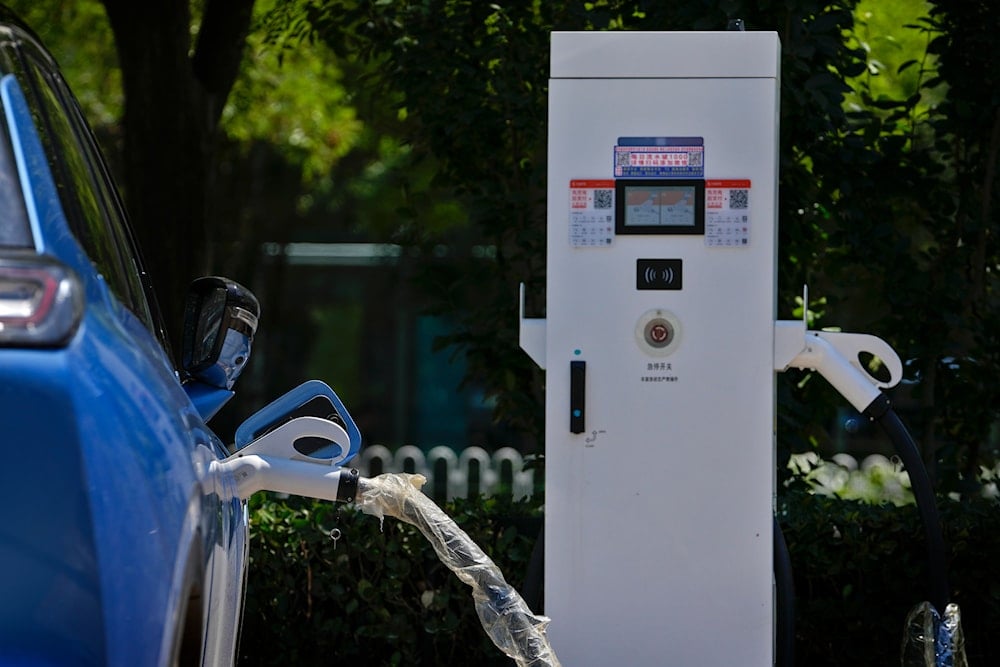Canada announces new tariffs on Chinese electric vehicles, metals
The Canadian government will impose a 100% surtax on Chinese-made electric vehicles and a 25% tariff on steel and aluminum imports from China.
-

A Chinese electric vehicle charges at an electric vehicle charging station in Beijing, Monday, June 24, 2024. (AP)
Canada has announced significant new tariffs on Chinese-made electric vehicles (EVs) and metals in a move aimed at supporting its domestic green economy.
Prime Minister Justin Trudeau revealed on Monday that the Canadian government will impose a 100% surtax on Chinese-made electric vehicles and a 25% tariff on steel and aluminum imports from China.
"Shortly, we will be introducing a 100% tariff on Chinese-made electric vehicles and a 25% tariff on Chinese steel and aluminum," Trudeau told reporters, adding that this decision is another step to ensure Canada becomes a leading nation in manufacturing for the 21st-century green economy.
Read more: China vows to protect its EV firms against EU tariffs
According to the Canadian Department of Finance, these tariffs on electric vehicles will take effect starting October 1, 2024.
The surtax will apply to all Chinese-made EVs, including electric and certain hybrid passenger automobiles, trucks, buses, and delivery vans.
The Department of Finance stated in its announcement that this measure aligns with Canada's broader strategy to develop its domestic green manufacturing sector and reduce reliance on foreign imports.
The new tariffs are allegedly aimed at encouraging local production and investment in green technologies as part of Canada’s commitment to advancing its environmental and economic goals.
Race against China
This comes against the backdrop of rising global trade tensions with China, driven by its electric vehicles being more affordably priced and highly competitive in the global market, offering consumers attractive alternatives due to their lower costs.
The EU and the US have also taken measures to protect their domestic industries from Chinese competition.
The United States recently announced a significant increase in tariffs on Chinese EVs, raising them to 100% from the previous 25%.
Similarly, the European Union has introduced steep tariffs on Chinese EVs, which range from 17.4% to 37.6%, depending on the manufacturer.
These tariffs are the result of an anti-subsidy investigation by the European Commission, which concluded that Chinese automakers benefit from substantial state subsidies that allow them to offer lower prices, thus posing a threat to the EU's domestic market.
Read more: China requests WTO consultations over EU tariffs on EVs

 3 Min Read
3 Min Read








